Intentar ORO - Gratis
THE ENCHANTED ISLES
Australian Geographic Magazine
|Australian Geographic #173
Long isolated, undiscovered and uninhabited, the Galápagos offers a rare window into a time when nature reigned supreme.

TRAVELLERS HAVE BEEN coming to the Galápagos since the early 16th century. Charles Darwin arrived in 1835 and made the volcanic archipelago famous for its wild denizens, which, in the 20th and 21st centuries, Sir David Attenborough turned into television stars.
But there's been a colourful parade of explorers, pirates, buccaneers, whalers, sealers, speculators and colonists who have also weighed anchor here since the first documented arrival by Fray Tomás de Berlanga. He stumbled upon the islands while sailing from Panama to Peru in 1535, ending their long isolation and heralding the start of their exploitation. It's likely that Indigenous sailors from the South American continent visited before Berlanga, but unlike many Pacific islands, the Galápagos wasn't colonised until modern times. By then, thanks to Darwin and forward-thinking Ecuadorian administrators, the archipelago's unique scientific value had been recognised.

Another notable visitor was Herman Melville, who arrived as a young seaman in 1841 aboard the whaler Acushnet. Melville's hard life aboard Acushnet informed his classic novel Moby Dick, with its vengeful white whale and crazed Captain Ahab. The famed piece of literature was inspired by the true story of the whaler Essex, which was rammed and sunk by a whale while the ship was conducting its bloody business in 1820. The Essex's crew had harvested almost all the giant tortoises as a ready source of fresh meat from Floreana in the Galápagos. They set fire to the island as they departed, destroying the remaining animals and sending the Floreana tortoise species extinct. The grim fate of the
Esta historia es de la edición Australian Geographic #173 de Australian Geographic Magazine.
Suscríbete a Magzter GOLD para acceder a miles de historias premium seleccionadas y a más de 9000 revistas y periódicos.
¿Ya eres suscriptor? Iniciar sesión
MÁS HISTORIAS DE Australian Geographic Magazine
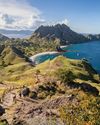
Australian Geographic Magazine
SULAWESI SENSATIONS
There are worlds within worlds and marvels untold waiting to be experienced on Indonesia's remote islands.
9 mins
September-October 2024
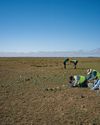
Australian Geographic Magazine
SEARCHING FOR AUSSIE DINOSAURS
Our understanding of where to find ancient life in Australia has been turned on its head by a new appreciation of the country's geology. Now the world is looking to our vast outback as the latest hotspot to locate fossils.
18 mins
September-October 2024
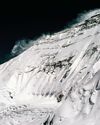
Australian Geographic Magazine
THE HARDEST NIGHT
The first Australian ascent of Mt Everest in 1984 is one of the great feats of mountaineering. Climbed by a small team semi-alpine style, with no bottled oxygen, via the Great (Norton) Couloir, it remains unrepeated 40 years later.
14 mins
September-October 2024
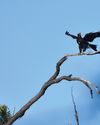
Australian Geographic Magazine
WEDGE-TAILED WONDER
The chance discovery of an eagle nest leads to an extended vigil observing normally hidden behaviours of one of nature's supreme winged marvels.
3 mins
September-October 2024
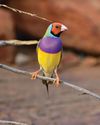
Australian Geographic Magazine
BURDENED BY BEAUTY
Northern Australia's Gouldian finch survives in huge numbers in cages around the world, but its wild population continues to struggle.
4 mins
September-October 2024
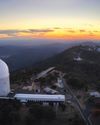
Australian Geographic Magazine
A TELESCOPE FOR A GOLDEN AGE
After a stellar 50 years as one of the country's major scientific assets, the AAT continues to play a major role in keeping Australian astronomy on the world stage.
7 mins
September-October 2024
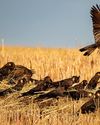
Australian Geographic Magazine
COCKY WHISPERING AT COOMALLO CREEK
This patch of remnant bush on the edge of the West Australian wheatbelt is a place loved by one of Australia's rarest bird species and the man who has studied the site for more than 50 years.
6 mins
September-October 2024

Australian Geographic Magazine
A PIONEERING PAIR
Louisa Atkinson and her mother, Charlotte, were among Australia's earliest authors, and pioneers in women's rights.
9 mins
September-October 2024
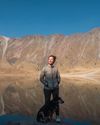
Australian Geographic Magazine
THE LONGEST WALK
Lucy Barnard is walking from Argentina to Alaska -the length of the Americas - on an extraordinary journey of endurance and adventure.
6 mins
September-October 2024
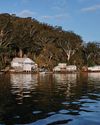
Australian Geographic Magazine
SECLUDED, BUT NOT ALONE
In an era of heightened social isolation, where many of us lead lonely lives, Dangar Island offers the chance to be part of a supportive, connected community.
7 mins
September-October 2024
Translate
Change font size
